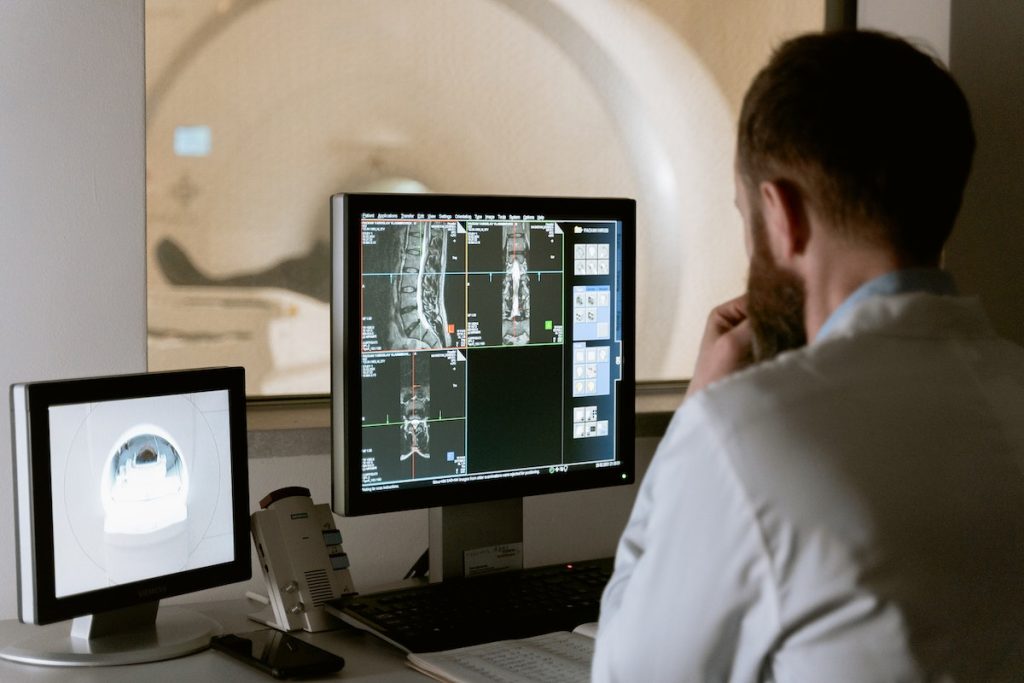- Integrated medical billing solutions save time and reduce errors for physicians
- Electronic Health Records (EHRs) provide timely access to patient data, improving communication and reducing error.s
- Remote Patient Monitoring improves patient care and reduces healthcare costs, especially for chronic conditions.
- Telemedicine improves access to healthcare and makes it more convenient for patients, particularly those in remote or underserved areas.
- Digital health applications help track and monitor patient activity, manage chronic conditions, and manage medication.
In today’s world, technology is revolutionizing every industry. The healthcare industry is no exception. Medical technology has advanced significantly in recent years, from digital health applications to remote monitoring devices.
These technological advancements have democratized healthcare and improved patient care. This blog will explore how medical doctors can use technology to improve patient care.
The Importance of Improved Patient Care
In today’s healthcare landscape, providing quality patient care is more important than ever. With rising costs and an aging population, physicians are often faced with the challenge of managing a high volume of patients while maintaining a high level of care. This can be difficult without the help of technology.
Why Use Technology?

Medical technology offers many benefits for both patients and physicians. For patients, it means that they have access to better, more efficient care. For physicians, it means that they can use technology to streamline processes and improve patient outcomes. When utilized correctly, technology can help physicians save time and improve the accuracy of patient care.
Technologies for Physicians to Consider
There are many technological tools available to help physicians improve patient care. Here are a few that every physician should consider incorporating into their practice:
Integrated Medical Billing Solutions
Medical billing can be a time-consuming and frustrating process for physicians. However, with the right technology, this burden can be significantly reduced. Integrated medical billing solutions for physicians can help them streamline administrative tasks and focus more on patient care.
These solutions automate the billing process, ensuring that claims are submitted accurately and promptly. This saves time and reduces the risk of errors, leading to faster reimbursement and improved cash flow.
Electronic Health Records (EHRs)
Electronic Health Records (EHRs) are electronic patient records providing clinical patient data. EHRs are considered to be an essential part of healthcare today. EHRs offer timely access to patient data, minimize errors, reduce redundancy, and improve communication between healthcare providers.
EHRs are also crucial for patient safety, as they help to identify interactions between medications and help to reduce errors. Medical doctors should make use of EHRs if they want to improve patient care.
Remote Patient Monitoring
Remote Patient Monitoring is a technology that allows medical doctors to monitor patients remotely from their homes. Remote monitoring devices allow patients to track their vital signs such as heart rate, blood pressure, and glucose levels, etc.
This technology not only helps to improve patient care but also reduces healthcare costs. Remote monitoring is especially useful for patients with chronic diseases like diabetes or heart disease. Medical doctors should consider remote patient monitoring to improve patient care.
Telemedicine
Telemedicine is the use of telecommunications technology to deliver healthcare services remotely. Telemedicine allows medical doctors to diagnose and treat patients using video conferencing technology remotely.
This technology improves patient care and makes healthcare more convenient and accessible. Telemedicine is especially beneficial for patients in remote or underserved areas and those with difficulty traveling to medical facilities. Medical doctors can use telemedicine to improve healthcare access and improve patient care.
Digital Health Applications
Digital health applications are healthcare software applications that help medical doctors improve communication with their patients and patient care. These applications can track and monitor patient activity, help patients manage their chronic conditions, and provide feedback to medical doctors.
Digital health applications can also help medical doctors track medications, appointments, and referrals. Medical doctors should utilize digital health applications to improve patient care.
Artificial Intelligence (AI)
Artificial Intelligence is the use of computer algorithms to perform cognitive functions that would typically require human intelligence, such as learning, problem-solving, and decision-making. Medical doctors are increasingly using AI to improve patient care.
AI is already used in medical imaging to detect and diagnose diseases. It is also used in medical research to identify new treatments. Medical doctors can also use AI to diagnose and improve patient outcomes.
The Bottomline
In conclusion, technology has the potential to revolutionize healthcare and improve patient care. Medical doctors should embrace technology in their practice if they want to provide better care to their patients. The tech advancements mentioned above are just a few examples of the many tools available to physicians. By incorporating these technologies into their practice, medical doctors can save time, reduce errors, and improve patient outcomes.

